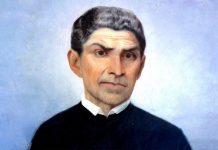If humanity could place its heart close to that Sacred Heart overflowing with Love, it would find the happiness it so longs for.
Newsdesk (10/07/2023 11:44, Gaudium Press) The liturgy for the 14th Sunday in Ordinary Time, emphasizes the importance of our surrender to God, inviting us to detach from self and from the world so that we may become more and more like Jesus, who is meek and humble of heart.
Meekness and humility
Among the countless teachings that Our Lord transmitted throughout His public life, there is one collected by St Matthew in his Gospel, which is not narrated by the other evangelists:
“Take my yoke upon you, and learn from me; for I am meek and humble of heart”. (Mt 11:29).
Now, after the sin of our first parents, Adam and Eve, human pride began to clamour for the exaltation of self; and, for this reason, the praise and adoration due to God alone began to be replaced by the acclaim and glorification of “self”.
Added to this is the revolutionary process that has been going on for five centuries among men which, as Prof. Plinio Corrêa de Oliveira points out [1], aims at destroying Christian Civilization, and to which this propelling spring called “pride” contributes.
However, no matter how intense human evil inclinations and the cunning power of darkness – with its machinations and wickedness – may seem in leading man to ruin, nothing surpasses the mighty power of God who is able to lead man to the pinnacles of holiness, provided he responds to the graces and inspirations received, and submits to the Creator with a meek and humble heart.
But what does it mean to be meek and humble?
St. Thomas explains [2] that it is proper to pride to be full of ingratitude, whereby we dismiss the goods we possess as being gifts from God; and it is proper to humility to lead a man not to exalt himself when he considers his own defects. Thus man ceases to yearn unreasonably for great things, because of the “reverence due to God, which leads him not to attribute to himself more than what is his due, according to the position which God has bestowed upon him”. Consequently, Aquinas concludes that “humility aims principally at man’s subjection to God.”[3]
The virtue of meekness, on the other hand, has the function of restraining and diminishing the impetus of anger. It also gives us that serenity of soul by which we desire nothing with feverishness and agitation, accepting whatever comes our way with complete resignation, patience and calm.
The love of God for mankind
The preoccupations of life, the pleasures and interests in the things of the world, often cause people to put their hearts where they should not be, making them restless and disturbed beyond measure. Yet, if humanity were to place its heart close to that Sacred Heart overflowing with love, it would find the happiness it so longs for.
However, if the heart is heavy with the burden of error, this should not be a reason for despair and distrust in God, for our Redeemer longs for the conversion of His wayward children with a love that knows no bounds.
In this regard, the religious and mystic, Sr. Josefa Menéndez, recounts that the Sacred Heart of Jesus once confided to her: “Do you think I have chosen you because of your virtue? I know that you have nothing but miseries and weaknesses, […] if I could have found a more miserable creature on earth, I would have fixed the gaze of My Love on her and, through her, I would have manifested the desires of My Heart. But since I did not find such a one, I chose you”.
It is enough, then, to draw near to this Heart, which is meek and humble, and in It we shall find the true repose of our souls.
By Guilherme Motta
[1] Cf. CORRÊA DE OLIVEIRA, Plinio. Revolução e Contra-Revolução. 5. ed. São Paulo: Retornarei, 2002, p. 14.
[2] Cf. SAINT THOMAS OF AQUINAS. Summa Theologica. II-II, q. 35, a. 1; q. 157, a. 1; q. 161, a. 1.
[3] Cf. ibid.
Compiled by Roberta MacEwan



































